Comparing Leading Conversational AI Platforms for Retail
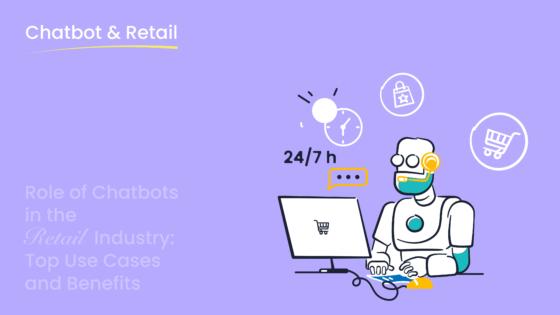
Retailers today rely on top conversational AI platforms like Sobot, Google, Microsoft, and IBM to transform customer service and sales. The conversational AI in retail market reached $2.8 billion in 2022 and will grow to $14.3 billion by 2030, showing rapid adoption. Sobot AI and other platforms help brands improve customer support, reduce costs, and boost operational efficiency. Chatbot solutions now handle 74% of basic customer interactions, delivering faster service. Enhanced customer service, higher sales conversion, and seamless omnichannel experiences drive the shift to conversational AI in retail.
Why Conversational AI in Retail Matters

Customer Experience Management
Retailers recognize that customer experience management shapes brand loyalty and drives repeat business. Conversational AI in retail enables 24/7 support, reducing wait times and making customer interactions more accessible. Customers expect instant answers, and 73% want websites to offer AI-powered chatbots for support. These platforms handle high volumes of customer interactions, providing real-time responses across channels like chat, email, and social media. Sobot’s omnichannel AI solutions unify these interactions, ensuring a high-quality user experience and consistent customer engagement. Real-time conversations and multilingual support allow retailers to serve global audiences, while AI-driven customer engagement tools analyze feedback and sentiment to improve customer experiences. Personalized interactions, powered by AI integration with CRM systems, help retailers deliver proactive recommendations and boost satisfaction.
Retailers like Walmart use conversational AI to manage millions of customer interactions, improving response speed and satisfaction.
Sales and Engagement
Conversational AI in retail transforms sales by enabling real-time, personalized shopping journeys. AI chatbots ask tailored questions, helping customers discover products that fit their needs. Real-time product information and recommendations increase trust and drive conversions. AI-driven customer engagement strategies, such as targeted promotions and cross-selling, raise average order value. Sobot’s AI-powered customer engagement tools automate these processes, supporting retailers in delivering seamless, personalized interactions. The adoption of conversational AI in retail has led to a 37% higher marketing campaign engagement and a 29% lower acquisition cost. The chart below highlights the impact of AI on sales and engagement:
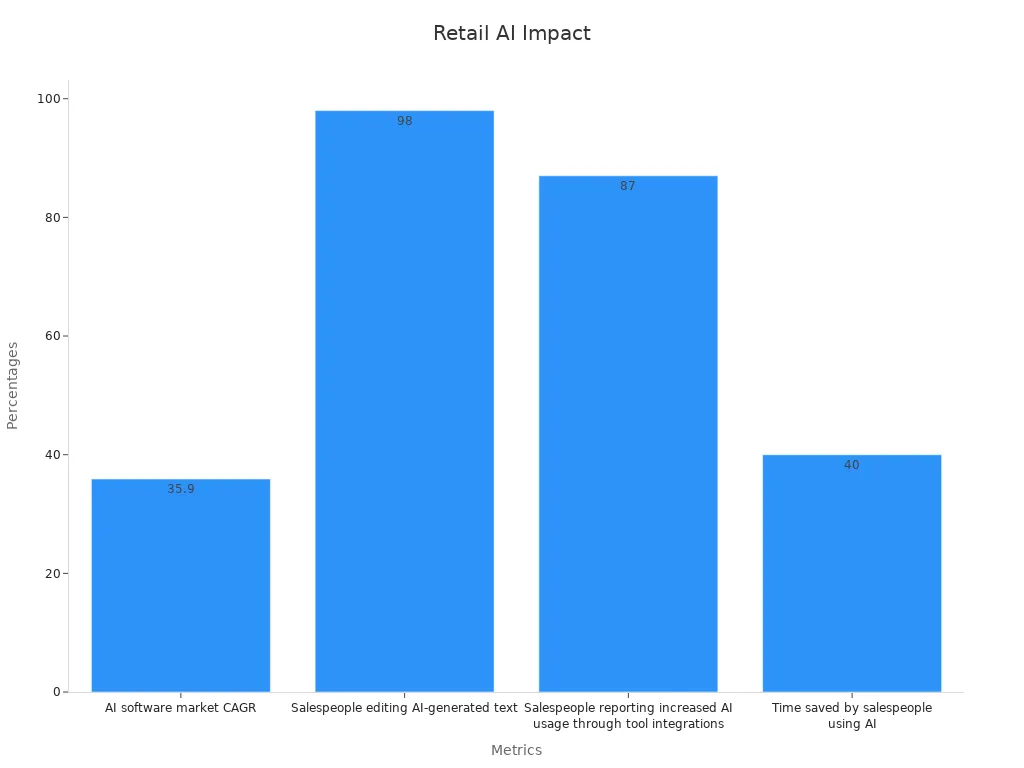
Operational Efficiency
Operational efficiency remains a top priority for retailers. Conversational AI in retail automates repetitive tasks, such as order tracking and inventory checks, freeing staff for complex issues. Real-time automation reduces operational costs by up to 47% and improves productivity. Sobot’s AI-driven automation streamlines workflows, from analyzing trends to sending targeted messages. AI agents provide real-time guidance, helping employees resolve customer interactions faster. Self-service options empower customers to solve issues independently, further reducing workload. Retailers using conversational AI report an 82% faster resolution time and a 30% reduction in stockouts, demonstrating the technology’s value in optimizing operations.
Key Criteria for Conversational AI Platforms
Selecting the right conversational ai platforms for retail requires a clear understanding of essential criteria. These factors help retailers deliver seamless customer interactions, drive ai-powered customer engagement, and achieve operational excellence.
NLP and Language Support
Natural language processing (NLP) forms the backbone of enterprise conversational ai. Advanced NLP and language support enable platforms to understand and respond to customer interactions in multiple languages. For example, platforms like Sobot use NLP to provide real-time, human-like conversations, improving customer satisfaction and operational efficiency. Multilingual support ensures retailers can serve global audiences and personalize interactions, which increases customer engagement and conversion rates.
| Platform | NLP & Language Support Highlights |
|---|---|
| Sobot | Multilingual, real-time NLP, 24/7 support |
| Azure AI (CLU) | 96+ languages, strong understanding |
| Google AI | Deep learning, sentiment analysis |
| AWS AI | Robust NLP, multiple languages |
Ease of Use
Ease of use impacts adoption and customer engagement. User-friendly conversational ai platforms foster confidence and satisfaction among retail staff and customers. Sobot’s no-code, point-and-click interface allows retailers to deploy ai-driven automation quickly, reducing training time. Studies show that platforms with intuitive interfaces and clear workflows increase purchase intention and improve customer interactions.
Integration with Retail Systems
Integration with retail systems is vital for enterprise conversational ai. Platforms must connect with CRM, order management, and marketing tools to unify customer interactions. Sobot integrates seamlessly with retail operations, enabling real-time data sharing and efficient communication. Successful integrations save time, automate routine tasks, and enhance ai-driven customer engagement.
Scalability
Retailers need conversational ai platforms that scale with business growth. Scalable solutions handle thousands of real-time customer interactions during peak periods without downtime. Sobot’s enterprise conversational ai manages high volumes, automates repetitive tasks, and supports global operations, ensuring consistent service quality.
Omnichannel Interactions
Omnichannel conversational ai connects chat, phone, email, and social media, creating unified customer journeys. Sobot’s omnichannel support remembers conversation context across channels, reducing friction and improving the customer experience. Retailers like Zara and Sephora have seen increased sales and customer loyalty through seamless omnichannel interactions.
Analytics and Reporting
Analytics and reporting provide insights into customer interactions and ai-powered customer engagement. Sobot offers real-time analytics, helping retailers track performance, optimize workflows, and identify trends. Leading platforms integrate with CRM systems, enabling data-driven decisions that improve customer satisfaction and operational efficiency.
Pricing and Value
Pricing models for conversational ai platforms vary. AI-driven dynamic pricing adjusts in real time based on demand and market trends, maximizing revenue and profit margins. Sobot delivers value by reducing service costs, increasing conversions, and supporting personalized interactions. Retailers benefit from flexible pricing that aligns with business goals and customer engagement strategies.
Security and Compliance
Security and compliance remain critical for enterprise conversational ai. Platforms must protect customer data, ensure GDPR compliance, and follow industry standards. Sobot uses data encryption, continuous backups, and robust access controls to safeguard customer interactions. Reliable security frameworks build trust and support long-term business growth.
Choosing conversational ai platforms based on these criteria ensures retailers deliver exceptional real-time customer interactions, drive ai-driven customer engagement, and achieve sustainable value.
Leading Conversational AI Platforms Overview
Sobot Chatbot for Retail
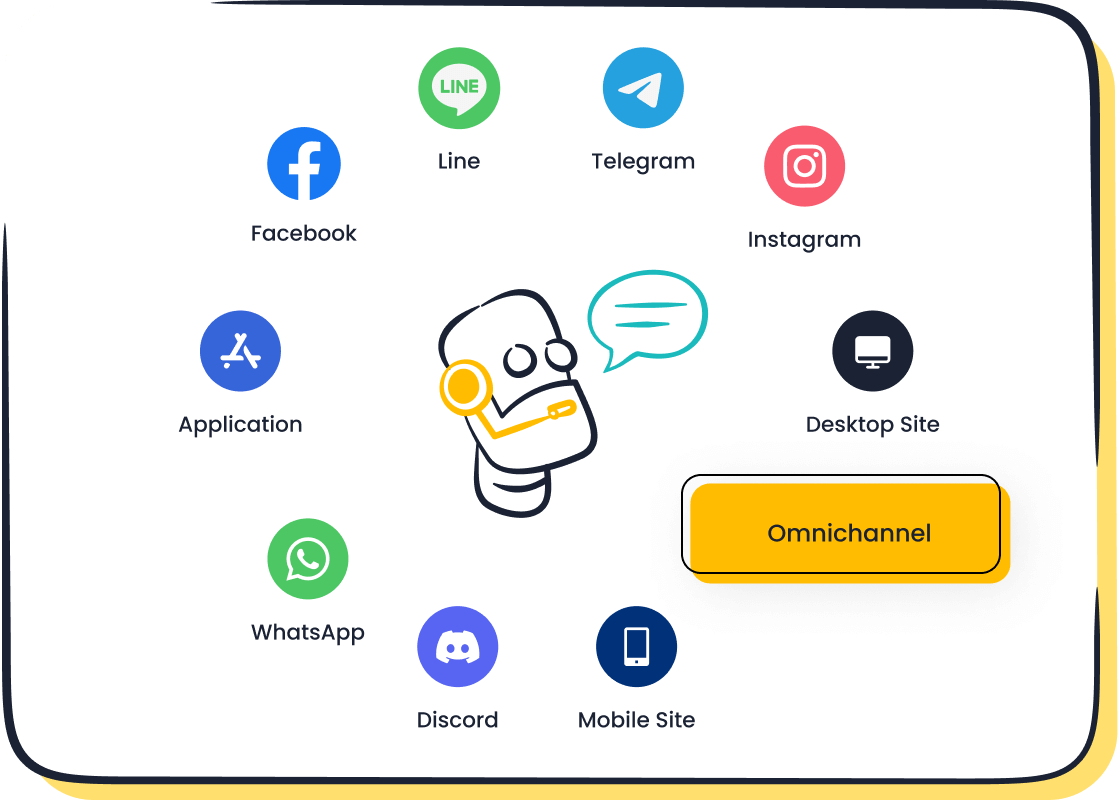
Sobot stands out among conversational ai platforms for retail with its all-in-one approach. The platform combines ai chatbots, live chat, voice, ticketing, and WhatsApp Business API into a single workspace. Retailers use Sobot to automate customer support, manage sales, and unify marketing across channels. The ai chatbot platform handles routine queries 24/7, freeing staff to focus on complex issues. Sobot’s integration with WhatsApp Business API allows brands to reach customers where they are most active, even during peak campaigns. The platform’s user-friendly interface makes it easy for teams to manage both automated and real-time conversations. Sobot’s ai-driven chatbots deliver personalized recommendations and automate inventory management, which helps retailers boost conversions and reduce costs.
Michael Kors, a global luxury brand, used Sobot to unify customer service channels and integrate CRM and order systems. This led to an 83% reduction in response time, a 95% customer satisfaction rate, and a 20% increase in conversions. Sobot’s solution enabled Michael Kors to provide seamless omnichannel support and personalized experiences, setting a new standard for retail customer engagement.
Sobot’s ready-to-use modules for dashboards, product creation, payment, and team management make it one of the best ai chatbots for retail. The platform’s automation features drastically reduce response times and improve customer engagement. Retailers report faster support, higher satisfaction, and seamless integration with existing systems.
Google Dialogflow
Google Dialogflow ranks among the top conversational ai platforms for retail. The platform uses advanced natural language processing to understand customer intent and provide accurate responses. Retailers benefit from Dialogflow’s ability to support multiple languages and integrate with Google Cloud services. The platform enables omnichannel customer service by connecting chat, voice, and social media channels. Dialogflow’s flexible APIs allow retailers to integrate with CRM, inventory, and order management systems. The platform’s analytics tools help businesses track customer interactions and optimize ai-driven chatbots for better engagement. Dialogflow’s scalability ensures consistent performance during high-traffic periods, making it a strong choice for enterprise retailers.
Amazon Lex
Amazon Lex delivers robust ai chatbots for retail businesses. The platform leverages the same technology as Alexa, providing natural conversations and voice support. Retailers use Lex to automate customer support, handle order tracking, and answer product questions. Lex integrates with AWS services, enabling secure data management and seamless connection to retail systems. The platform supports omnichannel interactions, allowing customers to engage through chat, voice, and messaging apps. Amazon Lex’s scalability and reliability make it suitable for retailers with large customer bases. Research shows Lex achieves high F1 scores in retail-specific tasks, such as locating stores and processing returns, ensuring accurate and efficient customer service.
IBM Watson Assistant
IBM Watson Assistant is recognized as one of the best conversational ai solutions for retail. The platform excels in natural language understanding, supporting complex retail scenarios. Watson Assistant enables retailers to automate customer support, provide personalized recommendations, and manage returns or order inquiries. The platform’s integration capabilities connect with CRM, ERP, and e-commerce systems, creating a unified customer experience. Watson Assistant supports omnichannel engagement, including chat, voice, and social media. According to a Perficient study, Watson Assistant achieved the highest F1 scores for retail intents, demonstrating its effectiveness in real-world retail environments. Retailers benefit from Watson’s analytics and reporting tools, which help optimize customer service and drive business growth.
Microsoft Azure Bot Service
Microsoft Azure Bot Service offers a comprehensive suite for building and deploying ai chatbots in retail. The platform supports over 96 languages and provides strong natural language understanding. Retailers use Azure Bot Service to automate customer support, manage sales inquiries, and deliver personalized shopping experiences. The platform integrates with Microsoft Dynamics, Power Platform, and other retail systems, enabling seamless data sharing. Azure Bot Service supports omnichannel interactions, allowing customers to connect via chat, voice, and messaging platforms. The platform’s analytics and monitoring tools help retailers track performance and improve ai-driven chatbots. Azure’s scalability ensures reliable service during peak shopping seasons.
OpenAI ChatGPT
OpenAI ChatGPT has become a popular choice among leading ai chatbots for retail. The platform uses advanced language models to generate human-like responses and handle complex customer queries. Retailers use ChatGPT to provide instant customer support, answer product questions, and assist with order management. The platform supports integration with various retail systems, enabling personalized recommendations and efficient workflows. ChatGPT’s omnichannel capabilities allow retailers to engage customers across chat, email, and social media. The platform’s analytics features help businesses monitor customer interactions and optimize service quality. ChatGPT’s flexibility and ease of use make it a valuable tool for retailers seeking to enhance customer engagement.
LivePerson
LivePerson is known for its focus on conversational commerce and customer engagement in retail. The platform enables retailers to deploy ai chatbots and human assistants across chat, messaging, and social media channels. LivePerson’s automation features help retailers handle high volumes of customer support inquiries, reducing wait times and improving satisfaction. The platform integrates with CRM and e-commerce systems, providing a unified view of customer interactions. LivePerson’s analytics tools offer insights into customer behavior and agent performance, helping retailers optimize their service strategies. The platform’s scalability and omnichannel support make it a strong option for retailers aiming to deliver seamless customer experiences.
A comprehensive study by Perficient compared leading conversational ai platforms for retail, including AWS Lex, Google Dialogflow, IBM Watson Assistant, and Microsoft LUIS. The study found that all platforms performed well on retail-specific tasks, with IBM Watson Assistant achieving the highest F1 scores. Each platform offers unique strengths in natural language understanding, ease of use, and integration, giving retailers a range of options to meet their customer service needs.
Feature Comparison for Customer Support
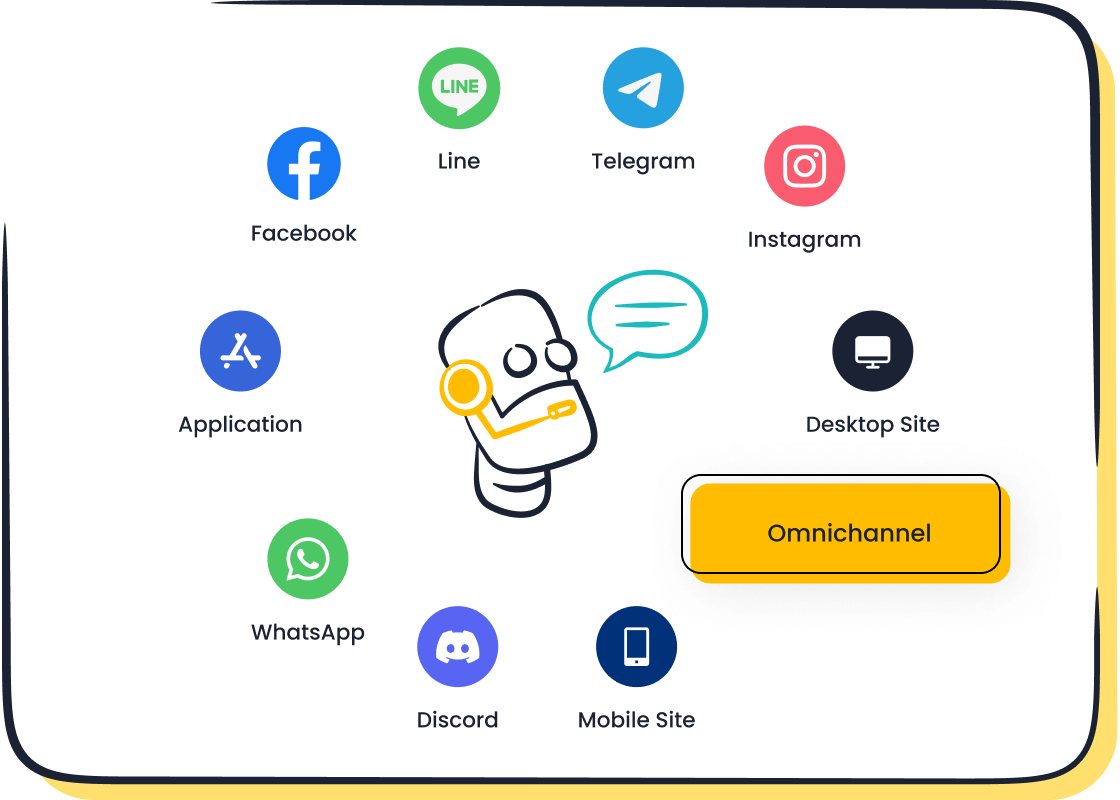
NLP and Multilingual Capabilities
Natural language processing (NLP) and multilingual support form the foundation of effective customer support. Platforms use NLP to understand and respond to customer interactions in real-time, making conversations feel natural. Sobot’s AI chatbots leverage advanced NLP to deliver accurate responses and support multiple languages, ensuring global reach. According to a review in NLP-based platform as a service: a brief review, most platforms offer features like sentiment analysis, translation, and language detection, but the complexity and usage limits can vary. Another systematic review highlights that NLP techniques such as neural machine translation and dialogue management improve customer satisfaction and reduce costs by automating responses in many languages. Sobot’s multilingual AI chatbots help retailers serve diverse audiences, providing seamless real-time conversations and boosting customer engagement.
| Platform | NLP Strengths | Multilingual Support |
|---|---|---|
| Sobot | Real-time NLP, context-aware, accurate | 24/7, multilingual |
| Google Dialogflow | Deep learning, sentiment analysis | 30+ languages |
| Amazon Lex | Natural conversations, voice support | Multiple languages |
| IBM Watson | Complex intent recognition | 13+ languages |
| Azure Bot | Strong language understanding | 96+ languages |
| OpenAI ChatGPT | Human-like, context-rich | Multilingual |
| LivePerson | Automated intent detection | Multilingual |
Multilingual NLP in customer support platforms enables chatbots and assistants to interact with customers in their preferred language, improving satisfaction and reducing response times.
Omnichannel Interactions
Omnichannel interactions allow retailers to connect with customers across chat, email, voice, and social media. Sobot’s platform unifies all customer interactions into a single workspace, making it easy for agents and AI chatbots to manage real-time conversations. This approach ensures that customer support remains consistent, no matter which channel the customer uses. Retailers benefit from seamless transitions between channels, reducing friction and improving the overall customer experience. Sobot’s omnichannel support helps brands like Michael Kors achieve high satisfaction rates and faster response times.
- Sobot: Unified inbox, real-time omnichannel support, WhatsApp API integration
- Google Dialogflow: Connects chat, voice, and social media
- Amazon Lex: Supports chat, voice, and messaging apps
- IBM Watson: Omnichannel engagement, including social media
- Azure Bot: Chat, voice, and messaging platforms
- OpenAI ChatGPT: Chat, email, and social media
- LivePerson: Chat, messaging, and social media
Omnichannel support ensures that every customer interaction is tracked and managed, leading to better customer service and higher engagement.
Integration and Customization
Integration with retail systems and customization options are critical for delivering personalized customer support. Sobot integrates with CRM, order management, and marketing tools, allowing real-time data sharing and efficient workflows. The platform’s no-code, point-and-click interface enables retailers to customize AI chatbots and assistants without technical expertise. This flexibility helps businesses automate routine tasks and tailor customer interactions to specific needs.
| Platform | Integration Capabilities | Customization Options |
|---|---|---|
| Sobot | CRM, order, marketing, WhatsApp | No-code, point-and-click |
| Google Dialogflow | Google Cloud, CRM, APIs | Flexible APIs, custom flows |
| Amazon Lex | AWS, CRM, retail systems | Customizable bots |
| IBM Watson | CRM, ERP, e-commerce | Advanced configuration |
| Azure Bot | Microsoft Dynamics, Power Platform | Customizable workflows |
| OpenAI ChatGPT | APIs, retail systems | Custom prompts, workflows |
| LivePerson | CRM, e-commerce | Custom bots, workflows |
Easy integration and customization empower retailers to deliver real-time, personalized customer interactions and streamline operations.
Analytics and Insights
Analytics and insights drive continuous improvement in customer support. Sobot provides real-time analytics dashboards that visualize key performance indicators, helping retailers track customer interactions and optimize service. A case study from a UK-based retailer showed that AI-powered analytics led to a 20% improvement in customer retention and a 10% increase in new customer acquisition. Platforms like Qualtrics, Medallia, and Thematic offer AI-driven text analysis, sentiment detection, and predictive analytics, enabling teams to uncover hidden patterns and trends. Sobot’s reporting tools allow retailers to identify gaps, optimize workflows, and make data-driven decisions.
- Real-time dashboards visualize customer interactions and agent performance.
- Predictive analytics forecast customer behavior and campaign success.
- Integration with CRM and marketing tools ensures comprehensive analysis.
- Visualization tools like Tableau and IBM Watson create interactive reports.
Analytics and insights help retailers understand customer needs, improve service quality, and drive business growth.
Pricing Models
Pricing plays a major role in selecting the right customer support platform. Sobot offers flexible pricing that aligns with business goals, helping retailers reduce costs and maximize value. Many platforms provide tiered pricing, with free or entry-level plans for basic features and advanced plans for enterprise needs. The NLP-based platform as a service: a brief review notes that while free tiers exist, they often limit complexity and usage. Sobot’s pricing model delivers value by cutting service costs, increasing conversions, and supporting personalized interactions. Retailers should evaluate pricing based on expected volume of customer interactions, required features, and scalability.
| Platform | Pricing Structure | Value Highlights |
|---|---|---|
| Sobot | Flexible, usage-based, scalable | Reduces costs, boosts ROI |
| Google Dialogflow | Tiered, pay-as-you-go | Integrates with Google Cloud |
| Amazon Lex | Usage-based | AWS integration |
| IBM Watson | Tiered, enterprise plans | Advanced analytics |
| Azure Bot | Pay-as-you-go, enterprise | Microsoft ecosystem |
| OpenAI ChatGPT | Subscription, API usage | Human-like responses |
| LivePerson | Custom, enterprise | Conversational commerce |
Retailers should compare pricing models to ensure they receive the best value for their investment in customer support technology.
Security and Compliance
Security and compliance protect customer data and build trust. Sobot uses data encryption, continuous backups, and robust access controls to safeguard customer interactions. The platform complies with GDPR and other industry standards, ensuring that retailers can use AI chatbots and assistants confidently. Security features like encrypted backups and strict access management are essential for maintaining privacy and meeting regulatory requirements. Retailers must prioritize platforms that offer strong security frameworks to support long-term business growth.
- Sobot: Data encryption, GDPR compliance, continuous backups
- Google Dialogflow: Google Cloud security, compliance certifications
- Amazon Lex: AWS security, encrypted data
- IBM Watson: Enterprise-grade security, compliance tools
- Azure Bot: Microsoft security, regulatory compliance
- OpenAI ChatGPT: Secure APIs, privacy controls
- LivePerson: Data protection, compliance support
Security and compliance features ensure that every customer interaction remains private and protected, supporting sustainable customer service operations.
Use Cases and Success Stories
Sobot and Michael Kors
Michael Kors, a global luxury fashion brand, transformed its customer support and marketing with Sobot’s all-in-one platform. The company unified all customer interactions across phone, chat, and social media, allowing agents to manage conversations efficiently. By integrating live chat with ticketing and CRM systems, Michael Kors improved response times by 83% and achieved a 95% customer satisfaction rate. The use of Sobot’s WhatsApp API enabled verified bulk messaging, which increased customer engagement and led to a 20% rise in conversion rates. This success story demonstrates how seamless integration and automation can elevate customer experiences and drive measurable business results.
Read more about Michael Kors and Sobot
Ecommerce Customer Support
Conversational AI platforms like Sobot help ecommerce brands automate customer support, reducing the need for large support teams. Retailers use AI chatbots to handle common queries, such as order tracking and returns, which deflects up to 70% of support tickets. This automation allows human agents to focus on complex issues, improving overall efficiency. The table below highlights real-world success metrics across industries, including ecommerce:
| Use Case Category | Example Industry | Success Metric / Benefit | Quantified Result |
|---|---|---|---|
| Support Ticket Deflection | eCommerce | Reduction in support tickets through automation | 70% deflection of support tickets |
| Order Tracking & Returns | Retail/eCommerce | Deflection of support tickets and faster response times | Up to 70% support ticket deflection |
| Personalized Recommendations | Retail | Increase in accessory add-on purchases | 25% increase in accessory purchases |
Omnichannel Retail Interactions
Retailers now rely on omnichannel strategies to deliver consistent customer interactions across chat, email, voice, and social media. Sobot’s unified inbox and omnichannel support ensure that every customer interaction is tracked and managed in one place. Platforms like ContactPigeon use real-time analytics to help retailers make data-driven decisions and orchestrate campaigns across multiple channels. This approach leads to higher customer engagement and operational efficiency. The chart below shows the impact of conversational AI on key retail use cases:
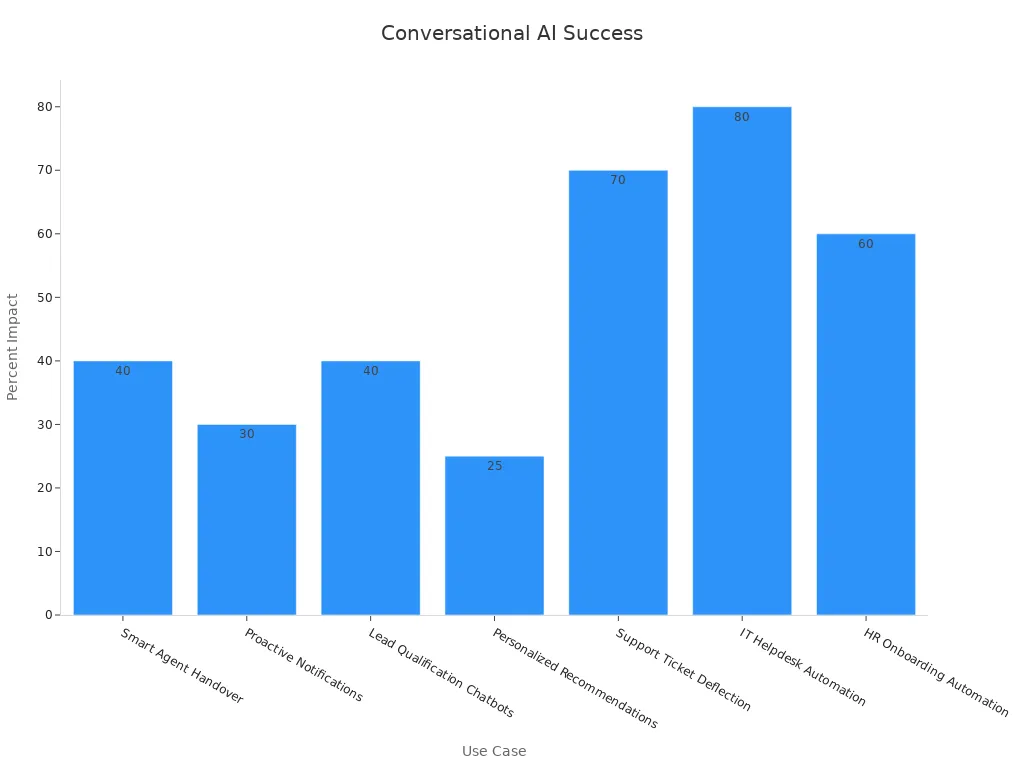
Improving Customer Experience Management
Conversational AI improves customer experience management by automating routine tasks and providing instant, accurate responses. Retailers like H&M have resolved 80% of customer queries automatically, reducing response times from minutes to seconds and cutting service costs by 30%. Sobot’s AI chatbots operate 24/7, support multiple languages, and offer smart escalation for complex issues. These features help brands deliver high-quality customer support and maintain strong customer engagement. Real-world examples show that AI-driven solutions lead to measurable improvements in efficiency, cost savings, and customer interactions.
Choosing the Right Platform
Assessing Retail Needs
Retailers must first define clear business objectives before selecting conversational ai platforms. Objectives may include improving customer support, increasing sales, or reducing service costs. Many retailers use a structured evaluation framework, such as the Platform Selection Canvas, to assess their needs. This framework helps teams evaluate multichannel reach, language coverage, feature richness, deployment models, pricing, company size suitability, and ethical governance. Retailers should also consider market share and analyst recognition when shortlisting the best conversational ai options. Sobot provides a comprehensive solution that aligns with these needs, offering omnichannel support and robust analytics for customer service.
Matching Features to Goals
Matching platform features to business goals ensures the right fit. Retailers should look for enterprise conversational ai that supports real-time customer support, multilingual interactions, and seamless integration with CRM systems. Sobot’s platform offers AI-driven automation, 24/7 support, and customizable workflows. These features help retailers automate routine tasks and deliver personalized customer service. Retailers should also evaluate conversational ai platforms for innovation, AI sophistication, and support for ethical practices like data privacy.
Integration and Scalability
Integration and scalability are critical for retail success. The best conversational ai platforms unify disconnected tools and databases, creating a single intelligent workflow. Sobot demonstrates strong integration by connecting chat, voice, email, and social media channels. This reduces turnaround time by up to 70% and maximizes operational efficiency. Scalability ensures that customer support remains fast and reliable, even during demand spikes. Sobot’s smart LLM calls optimize costs and maintain high performance as usage grows.
Support and Training
Effective support and training help retailers maximize platform value. Sobot offers 24/7 technical support, regular updates, and detailed training sessions. This approach ensures smooth onboarding and continuous improvement. Retailers benefit from responsive support teams and comprehensive documentation. Sobot’s implementation methodology includes integration setup, staff training, and ongoing optimization, making it easier for retailers to achieve their customer service goals.
Checklist for Retailers
Retailers can use this checklist to guide their platform selection process:
- Define business objectives for conversational ai platforms.
- Align platform features with customer support and sales goals.
- Evaluate integration with existing retail systems.
- Assess scalability for peak periods and future growth.
- Review pricing models and ensure cost efficiency.
- Check for multilingual and omnichannel capabilities.
- Confirm security, compliance, and ethical AI practices.
- Plan for support, training, and continuous improvement.
By following these steps, retailers can confidently select the best conversational ai platform for their needs and deliver outstanding customer service.
Recommendations for Retailers
Small Business vs. Enterprise
Retailers should consider company size and structure when selecting a conversational AI platform. Firmographic segmentation, which looks at factors like employee count and revenue, helps distinguish the needs of small businesses from those of large enterprises. Small businesses often seek platforms with simple onboarding, clear pricing, and easy integration. They benefit from solutions that offer dynamic segmentation, updating customer data after every interaction. Enterprises, on the other hand, require advanced customization, robust analytics, and scalable infrastructure. Sobot provides flexible solutions for both segments, supporting dynamic segmentation and real-time analytics. AI-powered tools help both small and large retailers adapt to changing customer needs, but marketers should always review AI recommendations to ensure they fit the brand’s context.
Tip: Small businesses should prioritize platforms with transparent pricing and minimal setup, while enterprises should focus on scalability and advanced analytics.
Omnichannel vs. Single Channel
Retailers must decide whether to support customers on multiple channels or focus on a single channel. Omnichannel platforms like Sobot unify chat, voice, email, and social media, allowing seamless customer journeys. This approach increases engagement and satisfaction, as customers can switch channels without losing context. Single channel solutions may suit retailers with limited resources or a focused customer base, but they risk missing out on broader engagement. Real-time shopper analytics show that omnichannel strategies drive higher retention and conversion rates. Sobot’s omnichannel support ensures consistent service and efficient management, regardless of channel volume.
- Omnichannel: Unified experience, higher engagement, better analytics
- Single Channel: Simpler setup, lower pricing, limited reach
Note: Retailers should weigh the benefits of omnichannel support against the simplicity and pricing advantages of single channel solutions.
Customization Needs
Every retailer has unique requirements for customer engagement. Customization allows businesses to tailor workflows, automate responses, and integrate with existing systems. Sobot offers a no-code, point-and-click interface, making customization accessible for teams without technical expertise. Predictive analytics and real-time segmentation help retailers anticipate customer needs and personalize interactions. For example, a retailer can use Sobot to automate order tracking or send targeted promotions based on customer behavior. Customization also impacts pricing, as advanced features may require higher-tier plans. Retailers should assess their need for custom workflows and balance them with their budget and technical resources.
Customization drives better customer experiences but may affect pricing and complexity.
Value and ROI
Retailers should evaluate conversational AI platforms based on value and return on investment (ROI). Cost-benefit analyses measure savings from reduced labor, faster response times, and higher first contact resolution. For example, chatbots can cut support costs by 30% by deflecting routine inquiries. A retailer handling 5,000 deflected tickets per month at $5 per ticket saves $25,000 monthly. Revenue gains come from increased conversions, upselling, and abandoned cart recovery. Sobot’s AI-driven solutions have helped brands achieve up to 200% ROI in the first year, with a 3x faster content cycle and a 5% lift in online conversions. ROI includes both hard returns, like cost savings, and soft benefits, such as improved brand reputation and workforce skills. Retailers should pilot solutions, monitor results, and adjust strategies to sustain ROI. Pricing transparency and scalability are key factors in maximizing value.
| Benefit Type | Example Metric | Impact on ROI |
|---|---|---|
| Cost Savings | 30% lower support costs | Higher profitability |
| Revenue Uplift | 10% more conversions | Increased sales |
| Customer Experience | 76% higher CSAT | Brand loyalty |
| Pricing | Flexible, usage-based plans | Budget alignment |
ROI is calculated as (Total Benefits - Total Costs) / Total Costs. Transparent pricing and continuous monitoring ensure sustained value from AI investments.
Retailers can boost customer satisfaction and sales by choosing the right conversational AI platforms. Sobot stands out for its all-in-one contact center, 24/7 multilingual support, and seamless integration, as seen with Michael Kors’ 83% faster response times.
Tip: Use the comparison table and checklist to match conversational AI platforms to your business needs.
Request demos or trials from top providers. Align your platform choice with your goals to deliver the best customer experience.
FAQ
What are conversational AI platforms in retail?
Conversational AI platforms in retail use artificial intelligence to automate customer interactions. These platforms handle tasks like answering questions, tracking orders, and providing product recommendations. Sobot’s AI chatbot, for example, supports 24/7 service and multilingual conversations, helping retailers improve efficiency and customer satisfaction.
How do conversational AI platforms improve customer support?
Conversational AI platforms reduce response times by up to 83% and automate routine queries. Sobot’s AI chatbot manages high volumes of customer inquiries, allowing human agents to focus on complex issues. This leads to higher customer satisfaction and lower operational costs. Learn more
Can conversational AI platforms integrate with existing retail systems?
Yes, most conversational AI platforms offer integration with CRM, order management, and marketing tools. Sobot connects seamlessly with these systems, enabling real-time data sharing and unified customer interactions. This integration streamlines workflows and boosts productivity for retail teams.
Are conversational AI platforms secure and compliant?
Security and compliance remain top priorities for conversational AI platforms. Sobot uses data encryption, GDPR compliance, and continuous backups to protect customer data. These features help retailers meet industry standards and build trust with their customers. See Sobot’s security features
What is the ROI of using conversational AI platforms in retail?
Retailers using conversational AI platforms often see a 30% reduction in support costs and a 20% increase in conversions. Sobot’s solutions deliver measurable ROI by automating tasks, improving customer engagement, and supporting omnichannel strategies. Read Michael Kors’ success story
See Also
Evaluating Artificial Intelligence Solutions For Enterprise Call Centers
Comparing The Best Interactive Voice Response Systems Today
A Comparison Of Leading Voice Of Customer Software Tools
